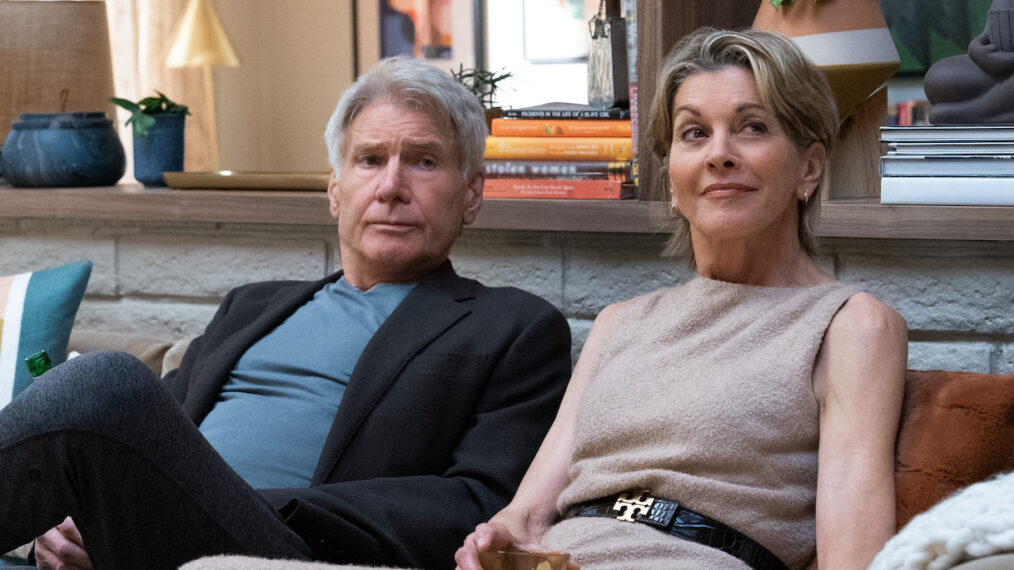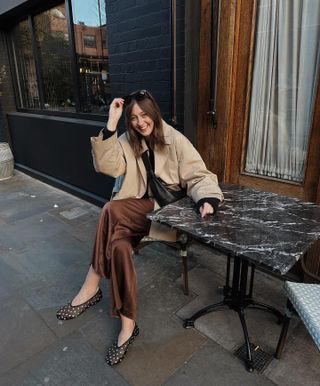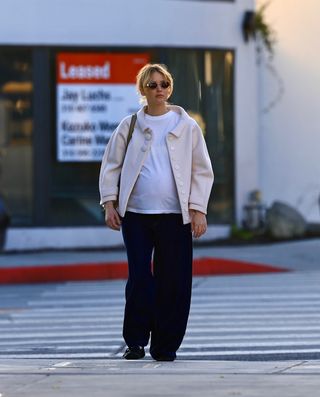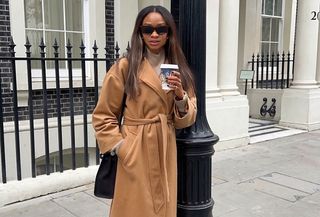
At 31, Nicole Kenney was on a fast track. She had graduated from Smith, earned a master’s in public policy from Johns Hopkins, was an assistant buyer for a division of Ross Stores in New York, and worked for nonprofits including the national NAACP in Washington, D.C.
But her mind, body, and spirit were running on empty. Her doctor told her it was stress; she disagreed. “I didn’t know your mental health could impact your physical health.” Her auntie paid a visit and offered some words that landed: “The last place you need to be when you’re in a low place is by yourself.”
Kenney moved home to Philadelphia where she stayed with her auntie, took a workshop on filmmaking for social change, and made a film about three Black women—her mom, her auntie, and a mentor—in conversation about how to live a more balanced life. Since then, she’s been building a new kind of success anchored in the model she used to recenter herself.
Her startup, Hey Auntie!, is a digital wellness platform and community that connects Black women across ages and life stages to, as Kenney says, “learn the rules, gain the tools, and build the network to thrive at home, work, and everywhere in between.” Kenney spoke with Fortune about the older women in her life, safe spaces, and the power of community.
Fortune: How does Hey Auntie! work?
Nicole Kenney: Black women sign up to be part of our community at heyauntie.io, and join in one of our community-building features, like our Lela’s Corners. Each month we connect groups of six women—half over 50 and half under—for two to three virtual sessions, each focused on a different topic.
This past month, the topics were: your word of the year, your song of the year, and your growth area for the year. I’ve been moderating them and doing an icebreaker to help women get to know each other, but eventually, the groups will be self-sustaining. Our community is national, even global, but we’re experimenting with various in-person connection models in our home base of Philadelphia.
How do you know you’re on to something?
The film resonated, resulting in requests to show it at meetings of church groups, companies, colleges and universities, and at the Congressional Caucus on Black Women & Girls Mental Health Briefing in Washington D.C. Even before our official launch, Hey Auntie! won the $50,000 grand prize in the Well City Challenge, a Philadelphia competition around solutions for millennial health. I’m proudest when members of our Hey Auntie! family say they feel safe, connected, and supported in navigating their lives. And they are having fun! These are the ingredients necessary to thrive. These indicators represent the ethos of the auntie.
What influences have shaped you as an entrepreneur and community builder?
I come from a family of faith that deeply believes in living and working to advance the well-being of others. My dad is a lawyer and also a deacon at my childhood church. I’ve watched him serve and care for the community in so many ways, both personally and professionally, all of my life.
For the longest time, I didn’t think I was an entrepreneur. When I tried to sell candy at school and was shut down, it made me think I didn’t have it!
But then I think of my mom and the magazine she started for urban teenage girls of faith, and it reminds me that it was there all along. She transitioned out of her career in sales and did something wildly outside of her comfort zone. I learned from watching her. She assembled a group of us, teenage Black girls together, and empowered us to create annual conferences and content that mattered to us. She created an infrastructure for us to share our stories and build community while also developing life skills like leadership and public speaking.
My mom has a very close relationship with her sister, my auntie, who has a 40-plus-year career as a public health nurse. And I have three incredibly brilliant and gifted younger sisters. So I’ve always been in this empowering community of girls supporting girls, women supporting women, and being of service to the community.
Can you share a key moment when an auntie stepped up in a way that made a big difference in your life?
My auntie is the one who told my mom about a high school, Hallahan High School for Girls, she thought I should go to, and that changed my life. So that was the first time, in an academic environment, I was in a diverse community of girls like me. That changed the trajectory of my life. I ended up going to Smith, where I learned so much from being around women who are change agents, who want to be global leaders.
What’s a key piece of advice you live by?
One of my pastors and a woman entrepreneur I know both said the same thing, and it stuck with me: “If your dream only includes you, it’s not big enough.” The fact that I need community to do this work tells me I’m on the right track. I was caught up in the do-it-yourself, competitive culture where there’s not enough for everyone. It wasn’t until I had my health issue and had to come back home that I rediscovered the power of community.
Why are these intergenerational conversations so important for Black women in particular, and for community health and well-being?
Many Black women suffer in silence. But when you begin to talk, you begin to recognize that it’s not just you. There’s a lot of shame and isolation that can come with feeling that you’re the only one.
I’ve talked to mental health professionals, and they’re the first to tell me that therapy cannot be the only tool in the toolbox. There have to be safe spaces for conversations to happen and for communities to be built and sustained. And with Black women in particular, finding safe communities to ask for help or just share the ups, downs, and even in-betweens, of life can be extremely difficult. Am I going to be believed or gaslighted?
Has anything surprised you along the way?
I’ve been most encouraged by the diversity of people who have supported the vision. I have been enthusiastically supported by Black women who are diverse in age, and I also have been supported by many non-Black women—white folks, men—who understand we need safe and culturally competent solutions to support Black women in being healthy and achieving their full potential today and for generations to come.
What’s next for Hey Auntie and for you?
I want to raise $1.5 million to help us go to market. The vision is to be able to connect tens of thousands of women all over the world.


























![Eminem – Somebody Save Me (feat. Jelly Roll) [Official Music Video] Eminem – Somebody Save Me (feat. Jelly Roll) [Official Music Video]](https://i.ytimg.com/vi/Vwa0HenQMi4/maxresdefault.jpg)
